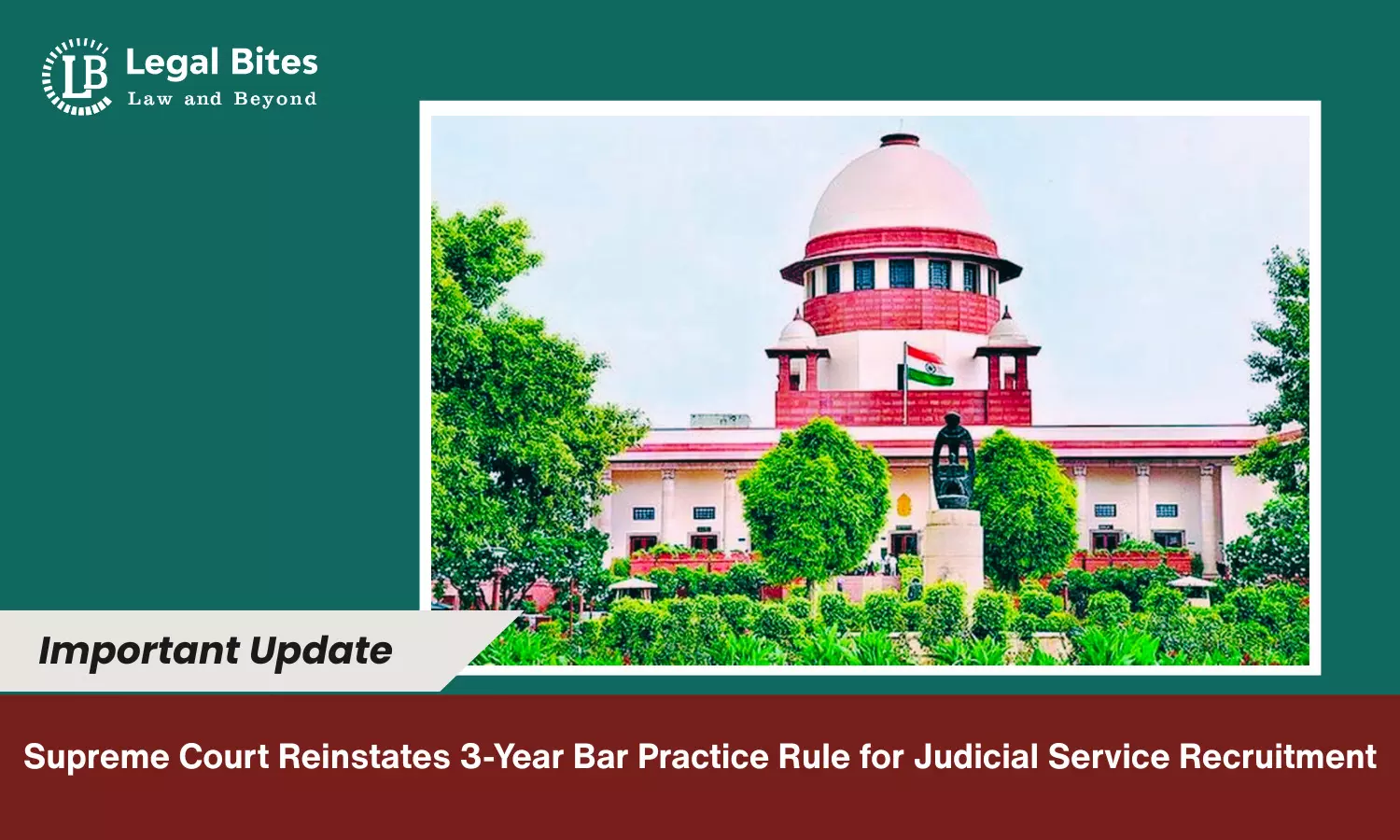
In a significant shift from its earlier stance, the Supreme Court has reinstated the requirement of a minimum of three years’ legal practice for candidates aspiring to join the judicial services as civil judges. The Supreme Court emphasised that no academic training can substitute for the real-world exposure gained through courtroom experience.
CJI Gavai-Led Bench Reviews Two Decades of Feedback
A bench headed by Chief Justice of India (CJI) Bhushan R Gavai, along with Justices A.G. Masih and K. Vinod Chandran, delivered the ruling after reviewing feedback from High Courts across the country. The judgment noted that recruiting fresh law graduates directly as judges—an approach adopted after the 2002 relaxation—had not yielded positive outcomes.
“It has led to several issues. Practical understanding of litigation and human sensitivity is better developed through active practice,” the bench observed.
Practical Experience Essential for Quality Justice, Says Court
The Supreme Court underlined that legal practice offers invaluable exposure to the complexities of litigation, procedural law, and human disputes—key elements that make a competent judge.
“Only a practicing advocate can truly grasp the intricacies of litigation,” the judgment declared, reinforcing the need for courtroom familiarity before assuming a judicial role.
Petition by All India Judges Association Led to Reconsideration
The order came in response to a petition filed by the All India Judges Association, which requested the restoration of the earlier rule requiring minimum law practice. The court had sought responses from state governments and High Courts, the majority of whom favoured reinstating the practice requirement.
Revised Eligibility to Be Enforced from Next Recruitment Cycle
The bench directed all states and High Courts to amend their recruitment rules within three months to align with the updated eligibility criteria. However, the new rule will not impact recruitment processes that are already in progress or for which notifications have already been issued. It will apply prospectively from the next recruitment cycle.
Process for Validating Legal Experience Clarified
The judgment laid out a specific procedure for candidates to prove their legal experience:
- An experience certificate must be signed by a lawyer with at least 10 years of practice.
- The certificate must be authenticated by a Principal Judicial Officer if issued for district court practice.
- For those practicing in High Courts or the Supreme Court, the certificate must be endorsed by a judge and issued by a senior advocate.
Experience Counted from Provisional Bar Registration
Importantly, the court clarified that experience will be calculated from the date of provisional registration with the Bar Council, even if the candidate has not yet passed the All India Bar Examination (AIBE).
Revisiting the 2002 Relaxation Based on the Shetty Commission
The ruling effectively overturns the 2002 decision in which the apex court removed the three-year requirement. That move was based on the Shetty Commission’s recommendations, which aimed to attract young, talented law graduates by eliminating practice-based entry barriers.
Rooted in the 1993 All India Judges Association Judgment
The original rule mandating legal experience stemmed from the landmark All India Judges Association case (1993), which laid the foundation for wide-ranging judicial service reforms. With the present decision, the Supreme Court reinforces its commitment to ensuring a more capable and experienced judiciary, placing practical exposure above theoretical qualifications.
Sources
- The Times of India (2025, May 20). SC Bars Fresh Law Graduates from Judicial Exams, Mandates 3 Years’ Legal Practice. Retrieved from timesofindia.indiatimes.com
- Hindustan Times (2025, May 20), Supreme Court Restores Rule Mandating 3-Year Law Practice for Judicial Service. Retrieved from hindustantimes.com